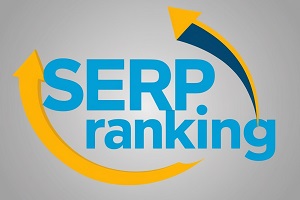Programmatic SEO : A Revolution in Search Engine Optimization

Programmatic SEO emerges as a powerful and dynamic approach to search engine optimization, offering efficiency, precision and scalability. This innovative method leverages automation and data-driven strategies to optimize a website’s performance, providing a competitive edge in the fiercely competitive online arena.
Understanding Programmatic SEO
Programmatic SEO is an evolution of traditional SEO practices, integrating automation and machine learning to streamline and enhance the optimization process.
Unlike manual SEO efforts, programmatic SEO relies on algorithms and data analysis to make informed decisions about content creation, keyword targeting, and overall website optimization.
This method enables marketers to respond to real-time changes in search engine algorithms and user behavior, ensuring a more adaptive and effective SEO strategy.
Key Components of Programmatic SEO
-
Data Analysis
Programmatic SEO heavily relies on data analysis to identify patterns, trends and user behavior.
Advanced analytics tools are employed to gather and interpret large volumes of data, providing insights into the performance of keywords, content and user engagement.
-
Automation
Automation is a cornerstone of programmatic SEO Tasks that traditionally required manual intervention, such as keyword research, content optimization and link building, are automated in programmatic SEO to save time and increase efficiency.
This allows marketers to focus on strategic planning and decision-making.
-
Machine Learning
Machine learning algorithms play a crucial role in programmatic SEO.
These algorithms continuously learn from data patterns, allowing for dynamic adjustments to SEO strategies based on evolving search engine algorithms and user preferences.
-
Dynamic Content Optimization
Programmatic SEO enables dynamic content optimization, tailoring website content in real-time based on user behavior and preferences.
This ensures that visitors receive personalized and relevant content, improving the overall user experience and engagement.
-
Real-time Bidding (RTB)
RTB is a key feature of programmatic advertising, but it has found its way into programmatic SEO as well.
Real-time bidding allows marketers to bid on keywords and ad placements in real-time, ensuring that resources are allocated efficiently to target high-performing keywords.
Benefits of Programmatic SEO
-
Efficiency and Time Savings
Automation streamlines repetitive tasks, allowing marketers to allocate their time more efficiently.
Programmatic SEO reduces the time spent on manual processes such as keyword research, enabling marketers to focus on strategic planning and optimization.
-
Real-time Adaptability
Traditional SEO strategies may become outdated due to rapid changes in search engine algorithms or shifts in user behavior.
Programmatic SEO, with its reliance on real-time data and machine learning, can adapt instantly to these changes, ensuring that your website remains optimized for current search trends.
-
Precision in Targeting
Programmatic SEO’s data-driven approach enhances precision in targeting the right audience.
Through detailed data analysis, marketers can identify and prioritize keywords and content that resonate with their target audience, leading to higher conversion rates and improved Return On Investments (ROI).
-
Scalability
As businesses grow, so do their digital marketing needs.
Programmatic SEO is highly scalable, making it suitable for businesses of all sizes. Whether you are a small startup or a large enterprise, programmatic SEO can adapt to the scale of your operations.
-
Improved User Experience
Dynamic content optimization ensures that users receive personalized and relevant content, enhancing their overall experience on the website.
This not only improves user satisfaction but also contributes to lower bounce rates and increased engagement.
-
Cost-effectiveness
While there may be initial investments in setting up programmatic SEO systems, the long term cost-effectiveness is note worthy.
The automation of various tasks reduces the need for extensive manpower and the precision in targeting ensures that resources are allocated to high-impact areas.
-
Enhanced Reporting and Analytics
Programmatic SEO provides robust reporting and analytics capabilities.
Marketers can gain deep insights into the performance of their SEO strategies, allowing for data-driven decision-making and continuous improvement.
-
Adaptation to Voice Search
With the rise of voice-activated devices and voice search, programmatic SEO is well-equipped to adapt the voice search. Machine learning algorithms can analyze the data from voice queries and optimize content for conversational search patterns.
To conclude, Programmatic SEO represents a paradigm shift in the field of Search Engine Optimization (SEO), leveraging automation, data analysis and machine learning to enhance efficiency, precision and scalability. Businesses adopting programmatic SEO gain a competitive edge by staying agile in response to dynamic changes in search engine algorithms and user behavior.
The benefits of Programmatic SEO extend beyond traditional SEO practices, offering a comprehensive and adaptive approach to digital marketing in the ever-evolving online landscape.



